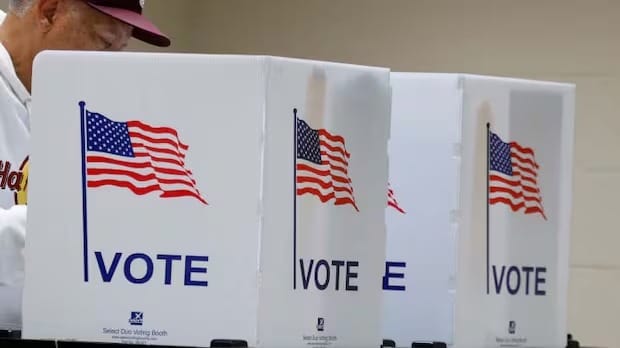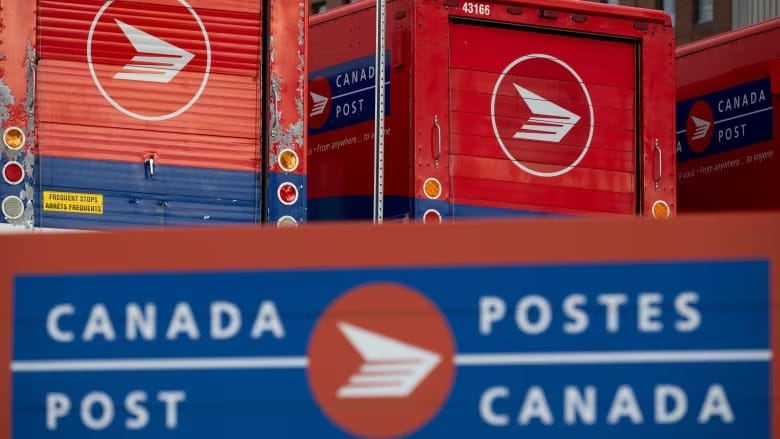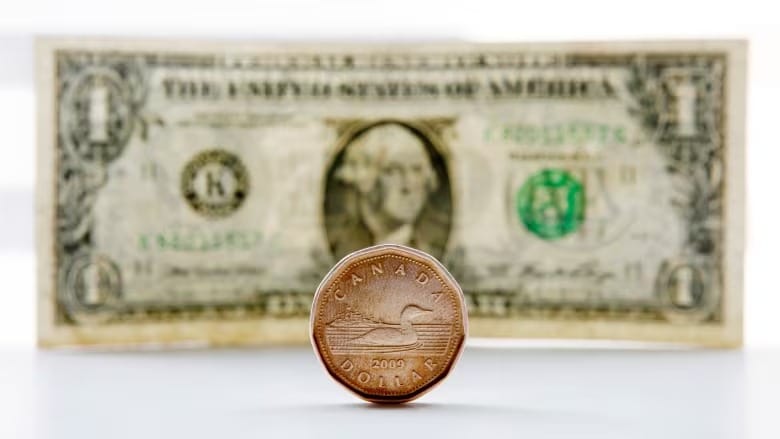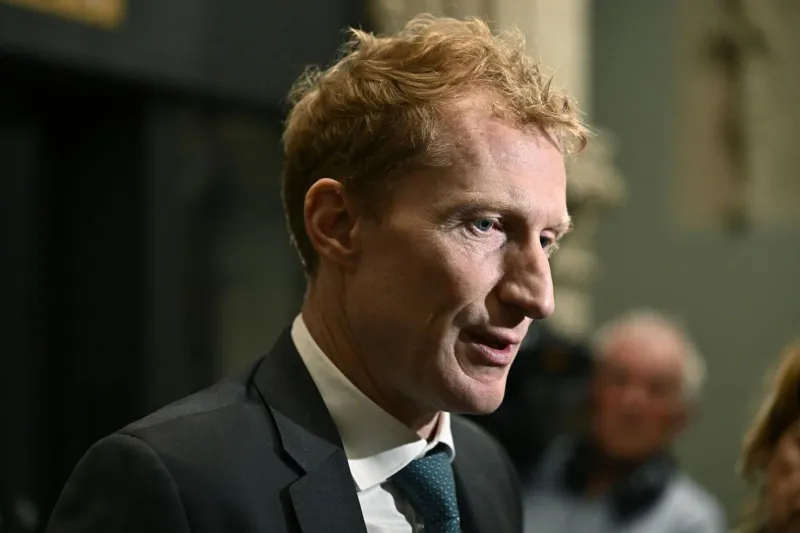How Canada's auto industry is 'on the ballot' in today's U.S. presidential election
Both major candidates have talked about protecting vehicle manufacturing in America

As voters decide who will lead the White House, there is a sense that the incoming U.S. president could implement policies that may alter Canada’s position in the automotive sector.
Both the Republican and Democratic parties have emphasized protecting vehicle manufacturing in the U.S. and expressed skepticism about North America's free trade agreement, making these key points during their extensive campaign stops in Michigan.
“The auto industry is on the ballot in 2024 like never before,” said Patrick Anderson, who runs a consultancy firm in Michigan working with manufacturers on both sides of the border.
Anderson explained that there are "two completely different visions for the future of the industry" being presented by Republican candidate and former president Donald Trump and Democratic candidate Vice President Kamala Harris.
Trump has announced plans to impose a 10 percent tariff on imported goods, which is expected to affect automotive suppliers in Ontario and Quebec.
“Donald Trump is the most provocative president in decades in terms of threatening and using tariff policy to push other nations into more favorable trade terms with the United States,” said Anderson. “And this is certainly unsettling to close trading partners like Canada.”
However, experts don’t believe Trump will carry out this threat.
“It would be catastrophic, but I don't think it's a real threat,” said Flavio Volpe, head of the Automotive Parts Manufacturers' Association in Canada. Volpe, who played a major role in negotiating the new North American free trade deal, believes a solution can be reached again.
“What Trump doesn’t understand, but the people around him do, is that tariffs are paid by the end customer,” he added.
On the other hand, Harris has remained quiet on tariffs but has focused on supporting the continued development of electric vehicles (EVs) in the U.S. as part of the administration’s current strategy.
Trump, if elected, has indicated he would remove subsidies from the Inflation Reduction Act (IRA) and shift focus back to vehicles powered by gas. The IRA offers incentives for automakers to source materials from the U.S. and North America while building vehicles and batteries, including tax credits of up to $45 per kilowatt-hour of battery production.
Canada was compelled to adopt a similar incentive after LG Energy Solution and Stellantis halted the construction of a $5 billion battery plant in Windsor, demanding comparable credits. The Canadian government renegotiated the deal, which now includes up to $15 billion in taxpayer-funded credits for the facility and 2,500 direct jobs.
This situation highlights how anchor projects for Canada's automotive industry may be drawn to the U.S.
The Windsor battery plant recently announced it is producing modules that hold the cells inside a battery, with experts saying the timing could not be better for Canada to demonstrate its role in the U.S. automotive future.
"It's important for us to make the argument that Canada’s inside of the tent," Volpe said.
He believes both Trump and Harris are competing to show who can better protect the U.S. from China, stressing that this is a pivotal moment for Canada to prove its value within the integrated vehicle supply chain.
Volpe emphasized that the Windsor battery plant plays a crucial role in arguing for Canada’s inclusion in the U.S. automotive future, regardless of which candidate wins.
Anderson noted that policies like the IRA are pushing automakers to build vehicles that are less popular in the U.S., as companies announce layoffs due to low demand.
“Certainly voters in Michigan are confronted immediately with the fact that the Democratic candidate has pushed policies that would force people to buy vehicles that by and large Americans are reluctant to purchase,” Anderson said.
The environmental standards imposed under Biden, which Trump has promised to remove, are part of the debate.
“I can’t recall a time where it was that divisive and that in your face for workers in the auto industry,” Anderson added.
Another important issue in the election is the candidates’ stance on the Canada-U.S.-Mexico Agreement (CUSMA).
"We've taken a clear turn," said Jonathon Hanson, a political scientist at the University of Michigan.
Hanson explained that the IRA is an example of the U.S. moving towards protectionism by subsidizing domestic manufacturing, and that the Biden administration has maintained tariffs that Trump initially imposed. He believes that the notion of free trade is no longer as influential as it once was, with a rise in nationalistic policies on both sides of the U.S. political spectrum.
Harris, who voted against CUSMA in 2020, has indicated she would review the deal in 2026 if she becomes president.
Brian Masse, the long-serving NDP MP for Windsor West, has been actively working with other MPs to highlight Canada’s importance in the automotive sector to American counterparts.
“It’s really difficult because you have to grab their attention, and often they don’t know the depth and value of what’s taking place,” said Masse. “They’re more concerned with politics on the southern border, for example, than the northern border, but their prosperity is really tied to us, too.”





